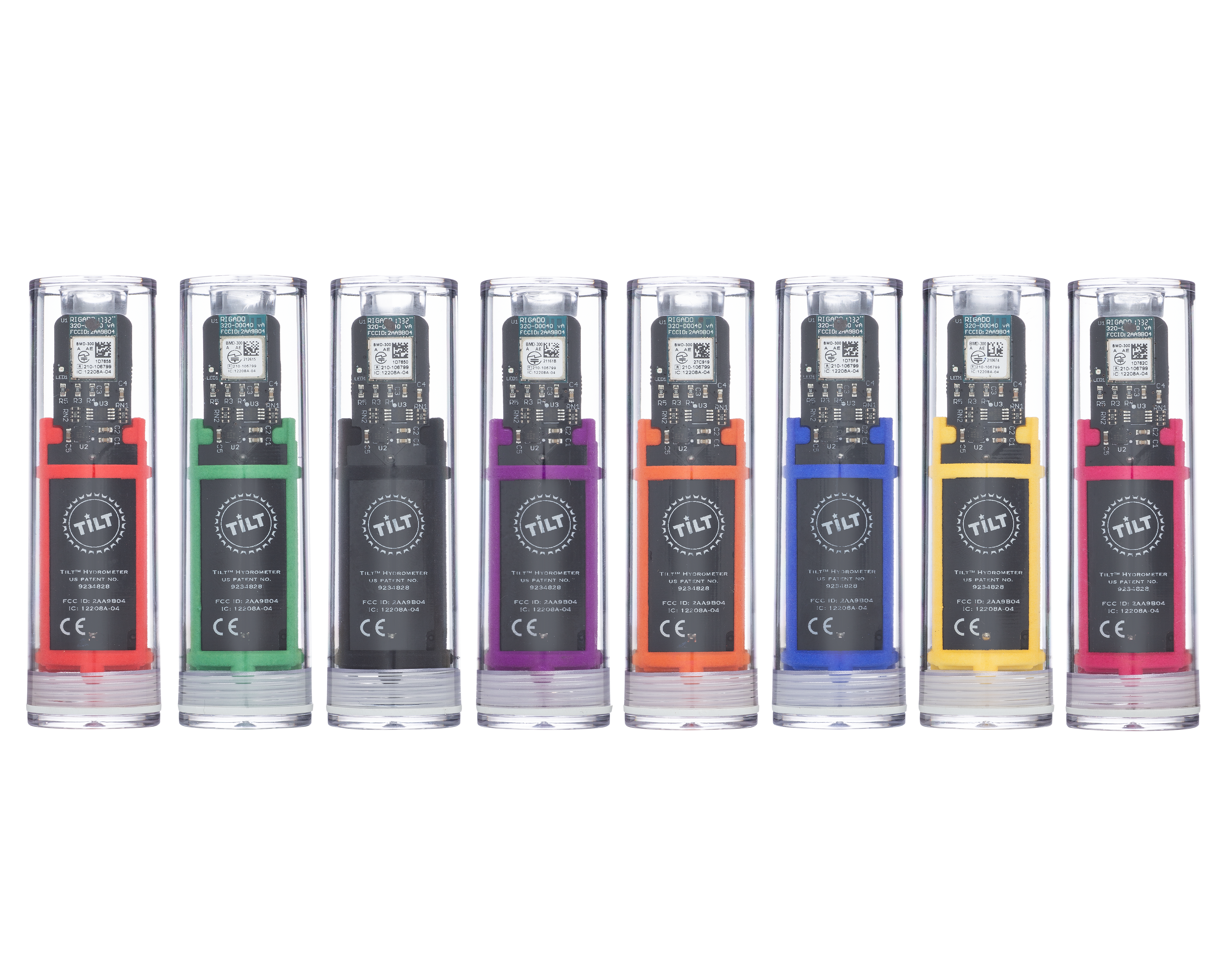
From milling to mashing, and from boiling to fermenting, home brewing means putting weeks of time and care into unique, quality beverages. High-performance tools make all the difference, and this is how Tilt Hydrometers came to be—co-founded by long-time brewer and CEO, Noah Neibaron.
It is easy to see that beer branding has become much more sophisticated, even for those who aren’t imbibing. The choices today are bold and boundless, featuring robust taste, flashy names, and eye-catching labels. Selections are continually expanded at high-end grocery stores, bar menus are loaded with choices for savvy beer drinkers, and a thriving market has opened up on the home-brewing scene too.
The process of making craft beer means going back to the basics of brewing, with less mechanization and mass production. There is much more to the process of brewing at home than novices may realize. Success lies in owning the proper tools, and knowing how to monitor and measure—especially during fermentation. Noah Neibaron learned by trial-and-error years ago as a beginner in home brewing, quickly realizing that a better device was needed to measure sugar levels.
Noah’s goal was to found a company centered around making quality products to help others brew really good beer.
“I ended up learning a lot about technology,” said Noah. “I was passionate about brewing and I really wanted the business to take off.”

“Shapeways was a large part of that. They were really great with fast service, quality, and the range of colors which actually ended up affecting our whole product line because we now make eight different colored 3D printed tilts—and those are the colors Shapeways sells.”
Noah began the process of creating his now patented free-floating hydrometer by using a rudimentary 3D design software program. Originally, he was relying on plastic milling for manufacturing test models, but quickly realized the process was far too slow and expensive in comparison to additive manufacturing. Noah continued to expand his design skills, and began working extensively with Shapeways for 3D printed products.
Tilt Hydrometer was originally just planning to sell working prototypes, but as development continued, the design team decided they were ready to produce complete, functional 3D printed devices using Selective Laser Sintering in Nylon 12.
Durability in materials was a huge consideration, especially considering the Tilt may be sitting in beer for many weeks or be subjected to high temperatures during brewing.
“Even it is under stress from flex which keeps it locked into the tube, it doesn’t get stuck in one shape but springs back easily,” said Noah in regard to the hydrometer.
With a general patent on the innovative device, Noah mentions that users in other applications are testing the hydrometer in applications like making salt solutions and keeping salt levels in fish tanks accurate. The hydrometer is a very sensitive measuring tool; for example, it can measure less than half a teaspoon of sugar in a quart of water.
The Tilt Hydrometer customer base is very healthy, and Noah attributes this to the adoption of technologies well-suited to the product—along with serious dedication in making the best hydrometer possible for home brew.
Check out the full case study here.
Industrial 3D printing services from Shapeways allow you to reap the rewards of high-performance, quality materials without having to invest all your business capital in the powerful hardware, software, and materials required for your build. Read about case studies, find out more about our solutions, and get instant quotes here.


